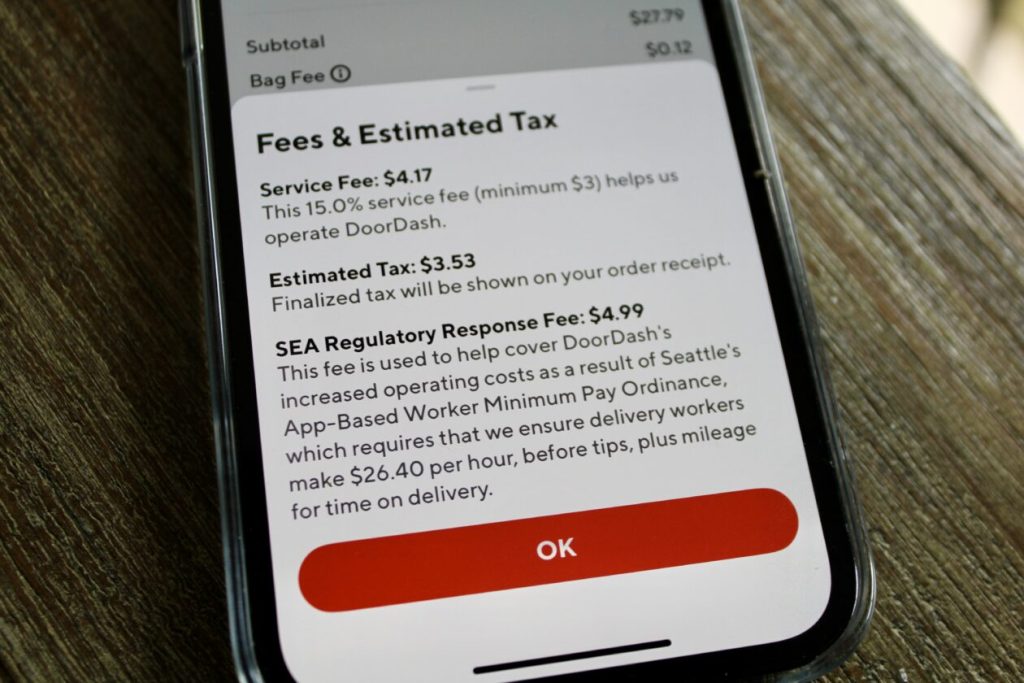DoorDash in Seattle has implemented a $4.99 “SEA Regulatory Response Fee” on consumer orders to help cover increased operating costs due to new minimum wage standards. The fee was introduced in January following the city’s implementation of the existing minimum wage law, aiming to cover the cost of the new regulations. However, with the new fee in place, demand for DoorDash and Uber Eats dropped, and both companies also adjusted tip mechanisms, causing complaints from drivers and restaurant owners about the lack of orders on the platforms.
After lobbying efforts by DoorDash and Uber, Seattle City Council President Sara Nelson proposed a new set of regulations in April that would lower the minimum wage standard for drivers from $26.40 to $19.97 per hour. The council was set to vote on the legislation, CB 120775, but the vote was postponed to consider amendments before proceeding. DoorDash has expressed readiness to remove the current fee once the reform bill is enacted and operational costs are reduced, supporting the compromise bill that guarantees Dasher earnings of at least Seattle’s minimum wage of $19.97 per active hour.
A complaint filed to the Federal Trade Commission alleges that the fees charged by DoorDash and Uber Eats are deceptive and misleading, with no reasonable relationship to the companies’ costs. Despite the complaint, the FTC declined to comment on the issue. Both companies are the top two food delivery companies in the U.S., and their CEOs have addressed Seattle’s minimum wage debate on recent earnings calls. DoorDash CEO Tony Xu believes that the regulations are having the opposite impact of what they intended to do, affecting drivers and restaurant owners differently in terms of income and demand.
Drivers and restaurant owners in Seattle have provided mixed responses to the minimum wage issue. Some drivers support the existing pay standard as it covers their rent, while others face reduced income due to lower demand. Similarly, some restaurant owners back the current law, while others believe the lack of demand is negatively impacting their business. The proposed ordinance aims to align the minimum pay rate for delivery drivers with Seattle’s citywide minimum wage for employed workers, which is currently $19.97 per hour. Arguments have been made for overall pay for drivers to account for expenses like payroll taxes paid by independent contractors.
Seattle and New York City have become testing grounds for labor standards in the growing food delivery market facilitated by tech companies like DoorDash and Uber Eats. These companies offer flexibility and independence to drivers but are facing scrutiny over their impact on workers and restaurants. Seattle’s minimum wage legislation was passed in 2022, aligning with other “PayUp” laws in the city related to worker deactivation processes, a per-order fee to fund implementation and enforcement of the laws, and a sick leave law for delivery workers. These policies highlight the ongoing debate over fair wages and working conditions in the food delivery industry.


